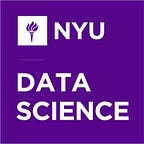CDS PhD Student Vishakh Padmakumar Presents Large Language Model for Collaborative Poetry Writing
The collaborative poetry writing system CoPoet aims to improve the quality of user-generated content
Large language models (LLMs) have made a significant impact in the field of natural language processing (NLP) by enabling researchers to develop AI systems responsive to human goals and specific instructions. A new collaborative text generation program called CoPoet is tailored to produce content specific to poetry. The model is based on a dataset of writing instructions from publicly available poem corpora and content from Reddit. It includes instructions for continuation which suggest content when the user doesn’t know how to proceed; lexical constraints which enable poetic forms like rhyme, sound, and meter, as well as rhetorical devices such as metaphor, similes, and onomatopoeia.
CoPoet was developed by PhD candidate in Computer Science at Columbia University Tuhin Chakrabarty, CDS PhD student Vishakh Padmakumar, and Assistant Professor of Computer Science and Data Science He He with the aim of enhancing the quality of user-generated content through human and machine collaboration. The research findings titled “Help me write a poem: Instruction Tuning as a Vehicle for Collaborative Poetry Writing” were presented at the 2022 Conference on Empirical Methods in Natural Language Processing (EMNLP 2022), held in Abu Dhabi from December 7th through December 11th.
Collaborative text generation programs like CoPoet aim to make the creative process of language generation easier for the end user by analyzing their needs and satisfying them. Instead of completing a user’s text, the platform responds to the user’s instructions, allowing them to work collaboratively with the system to develop lines of poetry. For example, one user asked the program to “Write a simile about cake” and was given suggestions they could accept or reject. They chose “Cake is like a cloud of joy,” and went on to ask the model to “Suggest a verse to follow the sentence ‘The cake is like a cloud of joy.’” By typing instructions into the generator, the following poem ‘Decadence’ was crafted: “The cake is like a cloud of joy / The frosting is like a rainbow / One slice is heaven on Earth / A flowing chocolate volcano.”
“While the new generation of transformer models are incredible in what they can achieve in both the space of art and language, what sets apart human creativity is the ability to take abstract ideas and thoughts and express them in a way that inspires,” said Vishakh. “We use instructions as a vehicle, allowing users to query the model for rhymes, metaphors and so on which they might want to include in their poetry.”
A model that allows for more specific instructions brings up questions about how it can best aid all users. “We need to ensure that these models are safe, equitable, and effective in providing assistance to users of all skill levels and backgrounds,” said Vishakh. For this case study, fifteen qualified users were able to write poems on topics ranging from the monarchy to climate change but to better understand user needs, more studies will need to be conducted.
The research project has also opened further lines of questioning such as analyzing how collaborative machine and human produced text differs from that of solo writers. “Subsequent research questions include examining if models are affecting either the diversity of language being produced or introduce certain elements of bias into the text, both potentially negative effects of collaboration,” said Vishakh. Another area of inquiry is exploring how model assistance can help writers with tasks in long-form story writing such as story planning.
To look through the poems produced through the case study, check out the CoPoet Directory of Poems. For more information about the research project, the CoPoet Project Website has a video demonstration and more.
by Meryl Phair
